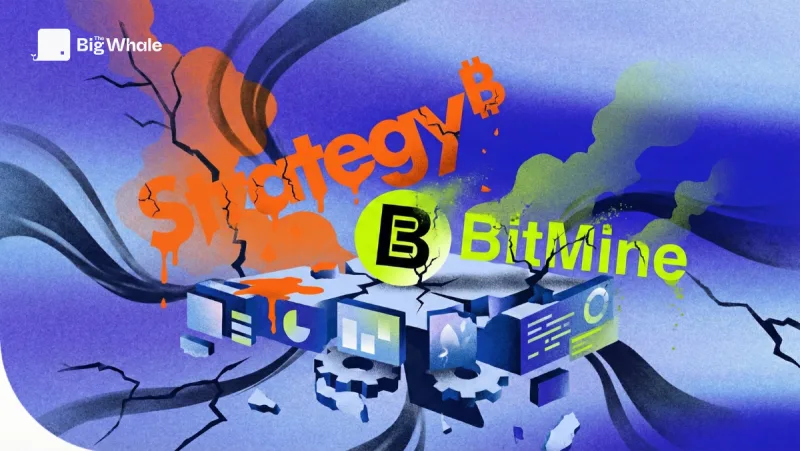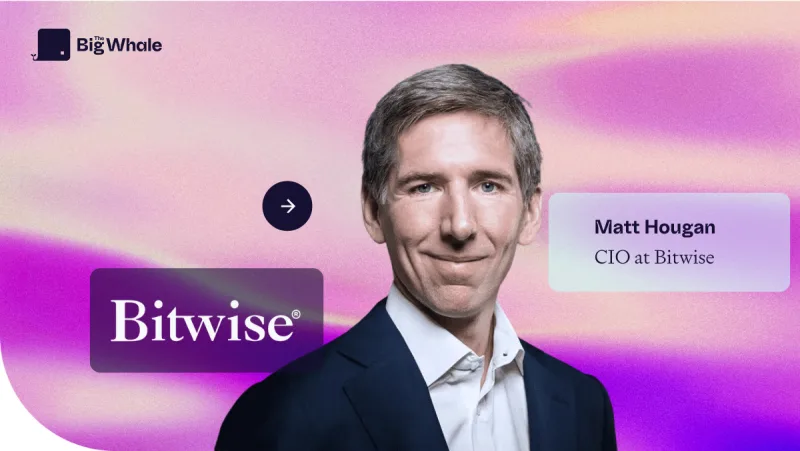TBW - Jezabel Couppey-Soubeyran: "Money is never neutral, it is always political".
"Money is never neutral, it is always political".

What do you retain from the events surrounding the trade war?
Jezabel Couppey-Soubeyran: What is at stake today around the trade war is extremely complex and deserves to be followed closely. The real question is whether this policy is based on a genuine strategy or whether it is being conducted in a more random fashion. What is certain is that these thunderous announcements of tariff increases, sometimes followed by reversals or pauses, have a direct impact on the financial markets. They can push prices down by triggering expectations of recession, before pushing them back up by announcing a lull or the opening of negotiations. In this context, it becomes possible to make profits by speculating on these fluctuations, especially if you have access to upstream information.
This opens up a serious question: that of the deliberate orchestration of market movements, which could allow insider trading. This deserves empirical exploration, even if this type of investigation is difficult to carry out because of restricted access to market data. But beyond this specific point, this climate of widespread uncertainty is having deleterious effects on the markets and on the decisions of private and public players. We could be entering a new financial crisis, and I fear that the post-2008 reforms have not been sufficient to prepare for it. As is often the case, it is the central banks that will have to intervene, by injecting massive amounts of liquidity, which is merely an extension of a system that is creating the conditions for its own repetition.
Concretely, what events could trigger a new financial crisis?
The combination of very high levels of private and public debt, and a loss of confidence in the markets, could be enough to trigger a new crisis. If investors anticipate a fall in prices, borrowing costs will rise, making it even more difficult to repay debts. We then fall back into patterns of over-indebtedness, where deleveraging becomes inevitable, fuelling a deflationary spiral.
The difficult thing is that the short- and long-term effects of current policies can be contradictory: tariffs can be inflationary in the short term, but if they cause a recession, they become deflationary. These are complex mechanisms, but there is no doubt that the current instability could very well lead to a new systemic crisis.
In retaliation, China is reportedly currently selling US Treasuries to put pressure on Trump. Is this a strong signal?
It is plausible and, in a way, would be a logical response to the trade tensions. China, like other countries, may seek to divest itself of US Treasuries in order to buy other sovereign securities, which could benefit Europe. But this raises a major question: the sustainability of US debt. The US enjoys an exorbitant privilege thanks to the international status of the dollar and US fiscal federalism.
As long as this framework is perceived as stable, its debt can remain sustainable at high levels. But if confidence is broken - for example if the idea that Trump might repudiate some of the debt were to take hold - this could set off a very dangerous chain reaction, with rising rates, increased debt costs, and a risk of no longer finding takers on the markets.
>> Alexandre Baradez: "Some are starting to test the soundness of the US bond market"
"The US-led trade war could prompt some countries to favour other currencies"
US Treasuries are considered the safest bond asset in the world. Can we really imagine a reversal in perception?
That's precisely what's striking: the fact that we're now asking a question that we weren't asking just a few years ago shows that something has changed. It's not the most likely scenario in the short term, but it can't be ruled out. And if it were to happen, it would be a veritable cataclysm, not only financial but also monetary.
It would call into question the hegemony of the dollar and could profoundly destabilise the international monetary system. This idea comes up periodically in debates, but today it is taking on new prominence, particularly in a context where the US-led trade war could encourage some countries to favour other currencies, which would ultimately erode the dollar's status.
Trump is currently putting pressure on the Fed to lower rates. Why?
Trump is seeking a cut in key rates in order to stimulate the US economy, although it does not particularly need it at this stage. He is hoping to create a stimulus effect, no doubt for electoral purposes. But Jerome Powell, despite being slightly less independent than the ECB, is resisting these pressures for the time being because inflation is still present.
Trump also seems to want a weaker dollar.... Is this compatible?
No, and this is a major contradiction in his strategy. On the one hand, he wants a weak dollar to improve the competitiveness of American exports, but on the other, this strategy risks weakening confidence in the American currency. And without that confidence, the US will find it much harder to finance its debt. There is a very delicate balance to maintain: too strong a currency hurts exports, but too weak a currency scares off investors.
Or Trump seems to be looking only at the trade side of the issue, forgetting the monetary and financial consequences. And in the context of a trade war, the other economic powers will not remain passive. They can react, conduct their own defensive monetary policy, or even turn to other instruments to escape the dollar's domination. What Trump is overlooking is the fact that a strong dollar, despite its drawbacks, remains the pillar of global confidence in US debt. To play down the dollar is to play with the stability of his own financial system.
"The crypto monetary project is a complete privatisation of money"
How do you judge the pro-crypto policy carried by Trump?
It's an interesting paradox. Trump claims to be a patriot, and therefore a defender of American sovereignty and the role of the dollar as a symbol of that sovereignty. But his political project is neolibertarian, and perfectly embraces the ideology carried by cryptos: rejection of central banks, the traditional banking sector, the State. The cryptos' monetary project is the complete privatisation of money. That's not at all the model I aspire to, but it's a transformation that needs to be watched carefully, because it reflects a different vision of the world.
China and Russia recently used Bitcoin for an energy transaction. Isn't this a turning point for the international financial system?
It shows that in a context of sanctions, some players are looking to test out workaround solutions. But I don't believe that Bitcoin can, in the medium or long term, establish itself as a widespread settlement currency for international trade. China's political project, for example, has nothing in common with that of Bitcoin, which remains fundamentally libertarian. What I see here is more of an ad hoc, tactical use. Bitcoin's apparent technical neutrality is attractive in crisis situations, but the currency is never politically neutral. If Bitcoin were to gain widespread acceptance, it would be because a certain political project - the widespread privatisation of money and the weakening of public institutions - had triumphed. And that's precisely what I have a problem with.
You criticise the current monetary system, but also that of cryptos. What do you propose?
The current monetary system is based on money creation provided by private banks that sell money via credit or the purchase of securities. This fuels financial capitalism and prevents any real ecological and social transformation. In "Le pouvoir de la monnaie" (published by Les liens qui libèrent, 2024), we propose that the European Central Bank should issue debt-free monetary subsidies to democratically governed public finance companies. These subsidies would be used to finance projects that have a strong ecological or social impact, but that are not profitable and therefore cannot be financed by conventional debt. It's a way of putting money back at the service of the general interest, without going through infinite growth.
"Bitcoin is an alternative monetary project that asks the right questions, even if I don't subscribe to its answers at all"
Bitcoin can be considered a public good, i.e. a community currency without discrimination. Wouldn't you agree with that?
It's an interesting idea, but it needs to be qualified. Admittedly, Bitcoin operates using an open protocol, in which anyone can theoretically participate. Its governance is collective in the sense that changes to the code are discussed on a distributed basis. But in practice, access to network validation requires mining, which is now an industrial activity dominated by players with enormous computing power. This creates a form of implicit exclusion. The reality of access is not as egalitarian as is claimed.
To get bitcoin without mining, you have to buy it, often on platforms that impose their own rules. So there's a gap between the stated community ideology and the socio-economic reality of its use. Finally, I believe that the speculative dynamic around Bitcoin blurs this image even further: many people now use it as a financial asset, not as a truly shared monetary alternative.
>> What are the major challenges that lie ahead for Bitcoin?
Despite everything, don't you think that Bitcoin prompts us to question the way the current monetary system works?
Yes, and that's probably its greatest usefulness. Through Satoshi Nakamoto's manifesto and the ideas it conveys, Bitcoin calls into question the monopoly of central banks, the logic of debt in money creation and the role of banks. It's an alternative monetary project that asks the right questions, even if I don't subscribe to its answers at all.
I think that the social project underlying Bitcoin is neolibertarian, that it promotes privatisation and individualism, and that it doesn't allow us to tackle the major collective challenges such as the ecological transition or reducing inequalities. That said, I find it very interesting that Bitcoin has prompted so many people to take an interest in money, how it is made and what its role is. It's a powerful intellectual lever, even if, once again, it seems to me to be highly problematic politically.
And if another financial crisis broke out, could cryptos appear as a refuge?
It's possible. If the next crisis is poorly managed - for example, if, as in 2008 or 2020, central banks intervene massively for the benefit of the financial markets without correcting the social imbalances - then we can expect renewed mistrust of official monetary institutions. This may fuel interest in cryptos as alternatives. But what I fear is that these alternatives will be perceived as neutral or emancipatory, when in fact they are part of a logic of extreme privatisation.
If a serious social or political crisis were to erupt in the wake of another financial crisis, this could open up a boulevard for these alternative monetary arrangements - not because they are fairer, but because they would be perceived as being outside the system. This is where the danger lies: we could have the illusion of a break with the past, when in reality we are deepening the commodification of the world.



